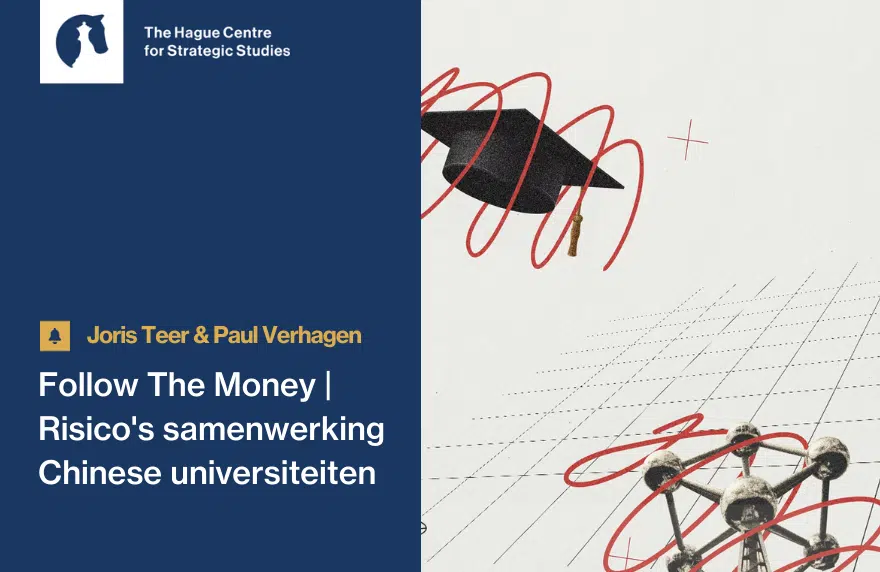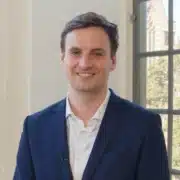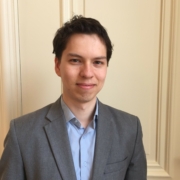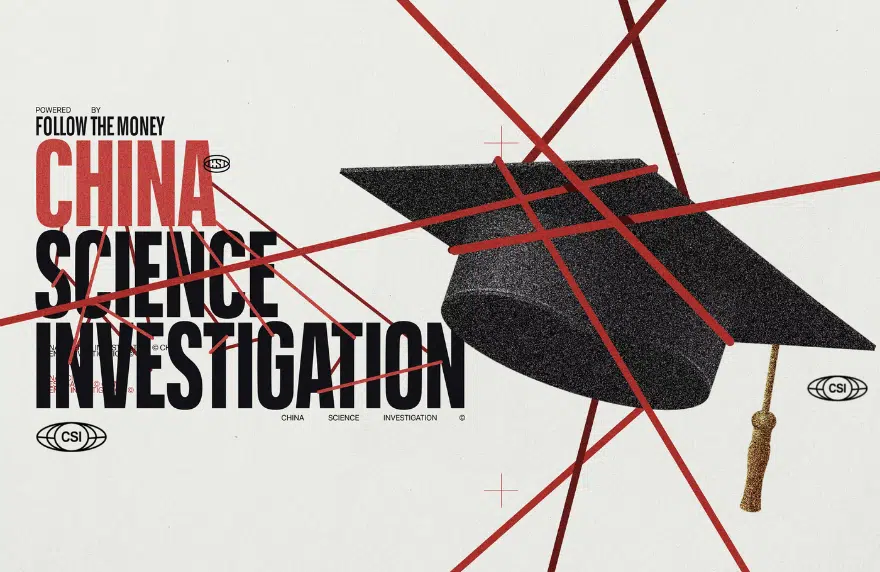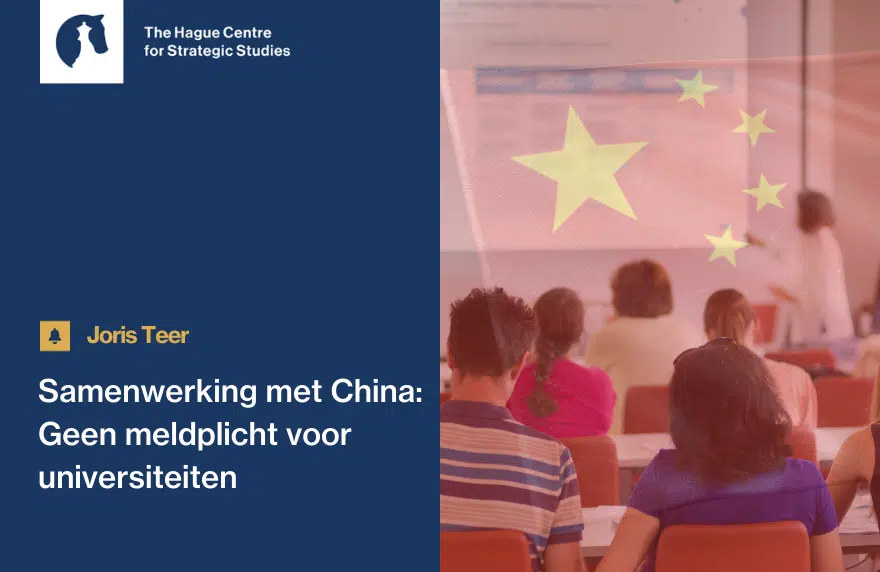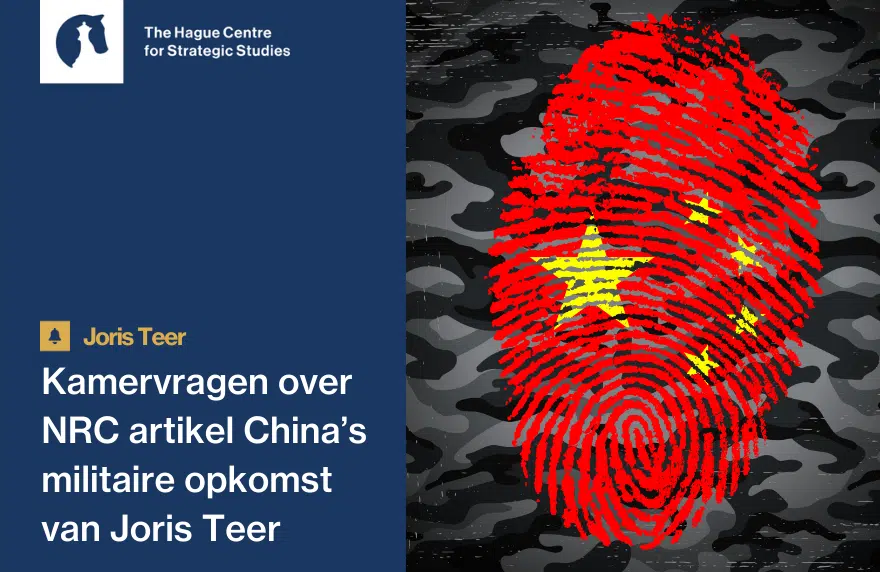De samenwerking van Nederlandse universiteiten met de Chinese krijgsmacht beperkt zich niet tot militaire universiteiten, schrijft Follow The Money. De afgelopen zeven jaar zijn er ook vele honderden onderzoeken gedaan met civiele Chinese universiteiten die zelf voor het leger werken.
Nederlandse wetenschappers blijken niet alleen onderzoek met collega’s van het Chinese leger te verrichten, maar ook worden sommige vruchten van hun studies met Chinese civiele collega’s uiteindelijk door het leger geplukt. Dat blijkt uit de China Science Investigation, een groot internationaal onderzoek naar ruim 350 duizend wetenschappelijke studies op initiatief van Follow the Money en met hulp van het Duitse non-profit onderzoeksplatform Correctiv.
‘Je kunt ervan uitgaan dat onderzoek naar alles wat vliegt, vaart of rijdt nuttig kan zijn voor de Chinese strijdmacht,’ zegt Paul Verhagen van de denktank The Hague Centre for Strategic Studies (HCSS); hij is gespecialiseerd in onderwerpen als kunstmatige intelligentie, quantum computing, en de Chinees-Amerikaanse tech-wapenwedloop.
Verhagen: ‘Dat geldt ook voor deze specifieke studie naar droneboten. Zulke boten kunnen handig zijn omdat ze soms lastig detecteerbaar zijn en zo langs de verdedigingslinie kunnen komen, of omdat er zoveel op de vijand kunnen worden afgestuurd dat de verdediging ze niet meer kan tegenhouden.’ The Washington Post beschreef in april van dit jaar nog hoe de Amerikaanse defensie wil dat ‘robotschepen matrozen [kunnen] vervangen in de strijd’, om de concurrentie met China aan te kunnen gaan.
Op academisch vlak moeten we ‘absoluut’ met China blijven samenwerken. ‘Op bijvoorbeeld economisch, politicologisch en sociologisch gebied is interactie niet alleen wenselijk, maar zelfs noodzakelijk.’
Joris Teer, HCSS China-analist
Kunnen Westerse universiteiten dan helemaal niet meer met China samenwerken? Dat kan best, zeggen eigenlijk alle deskundigen […]. Joris Teer, China-analist bij The Hague Centre for Strategic Studies, vindt dat we op academisch vlak ‘absoluut’ met China moeten blijven samenwerken. ‘Op bijvoorbeeld economisch, politicologisch en sociologisch gebied is interactie niet alleen wenselijk, maar zelfs noodzakelijk.’
Maar voor hoogwaardige technologie ligt de zaak anders. Teer vindt dat er in de eerste plaats een duidelijke definitie moet komen van risico-vakgebieden. Die moeten in kaart worden gebracht, niet alleen door defensie-experts, maar ook door investerings- en screeningsdeskundigen.
Teer: ‘De eersten hebben de kennis over de fundamentele technologische gaten waarmee de Chinese krijgsmacht nog worstelt en weten welke technologieën de oorlogsvoering van de toekomst bepalen; denk aan kunstmatige intelligentie, de nieuwste semiconductors en dronezwermen. Experts op het gebied van foreign direct investment en joint ventures hebben een goed beeld hoeveel geld China waaraan besteedt, zowel in binnen- als buitenland. Dat is een tweede indicatie welke kennis die Peking wil binnenhalen.’
Hij pleit voor een meldingsplicht voor universiteiten en bedrijven ‘inzake samenwerkingen in deze risico-vakgebieden, ook die van PhD-studenten’. ‘Tot slot moet de overheid het recht krijgen om “nee” te kunnen zeggen. Niks doen is geen optie. Als China via Europese universiteiten en bedrijven de technologie verkrijgt voor een eersteklas straaljager, anti-onderzeeër-oorlogsvoering en een nucleair aangedreven vliegdekschip, verandert het dreigingsbeeld rond Taiwan en in de Zuid-Chinese Zee snel.’
Lees het hele artikel bij Follow The Money.

